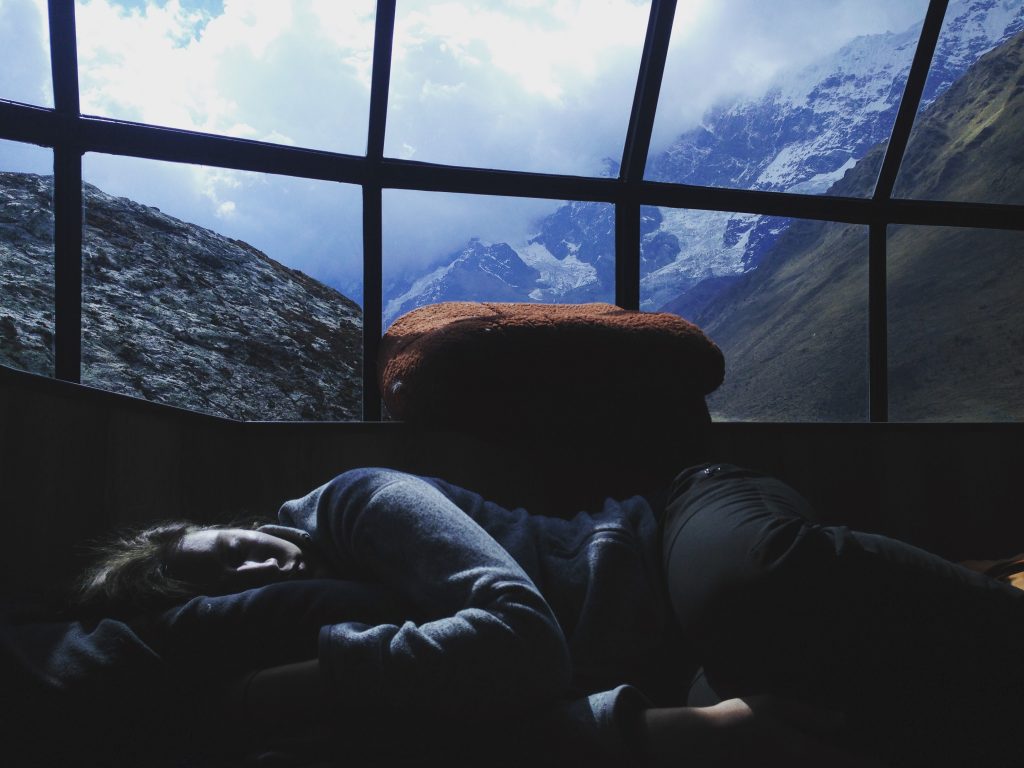
Since Coronavirus entered the national consciousness, many of us have experienced elevated levels of stress and anxiety. Worries about jobs, the education of our kids, the health and protection of loved ones, and the weirdness of not being able to be close to others have all combined to create one giant panic attack waiting to happen. Despite the time off from work and social life, freeing up more hours for naps and overnight slumber, many of us are actually experiencing reduced or disrupted sleep during this pandemic.
Why the disconnect and, more importantly, what can we do about it?
A small number of lucky people can get good sleep no matter what the conditions but for most of us, good sleep requires: 1) emotional well-being, 2) physical health, and 3) a sleep-conducive environment. If any one of these is out of whack, it can have a major impact on the overall amount of sleep you are getting, as well as the quality of sleep. Unfortunately, our current national crisis with Coronavirus has impacted all three of these pillars of good sleep. Here are some tips for dealing with each pillar with the goal of getting better rest.
Pillar #1: Emotional Well-Being
-Find alternate ways to stay emotionally close to friends and family, despite the need for social distancing. Write letters, send cards, call, video chat, or whatever you need to do to feel connected.
-Take up meditation. There are wonderful apps like Buddhify and Headspace, that can help alleviate anxiety, soothe nerves, and teach you some positive new skills.
-Avoid overdosing on the news. While informative, watching those illness and death toll counts in the corner of the screen can send your anxiety soaring. If you want to stay informed, set limits for yourself — choosing a news outlet that is factual, not sensationalist, and checking in just once or twice a day. Focus instead on simple, tangible to-do’s like washing your hands and cleaning hard surfaces and door handles in your home.
-Focus on smaller units of time like today and this week, rather than next month and next year. With so much uncertainty, it is hard not to begin to wonder about the long-term. At the same time, conditions change day to day so worrying about the long-term gets us stirred up without any power or control to do something about it. What we do have control over is what tasks we do today and tomorrow.
-Practice self-care. Now is a good time to pay close attention to your mental state. If you are getting particularly stressed or agitated, take steps to care for yourself: call a friend, exercise, or seek out counseling online.
Pillar #2: Physical Well-Being
-Exercise. Exercise is a fantastic way to release the physical tension that arises from stress. Thankfully, being outside and exercising is still something we are allowed to do. There are also some great books about using exercise as your primary treatment modality for depression or anxiety, including this one by Keith Johnsgard.
-Eat well and take your vitamins! Good nutrition plays an important role in sleep. Check out this article on the foods associated with normal sleep. It also highlights the vitamins that are associated with being able to sleep well.
-Drink more water. While you may have to lay off the water close to bedtime, staying hydrated throughout the day can help your overall quality of sleep. Inadequate hydration has been linked with several sleep issues, including snoring and nightime leg cramps.
Pillar #3: Conducive Circumstances
-Maintain a regular routine, including for sleep. Without a daily commute and places to be at certain times, it is easy to lose a sense of what day it is, much less what time. Establishing a schedule for yourself and your family can help your body to know when it is time to sleep and time to wake.
-Turn off the lights at night. Light suppresses melatonin in our bodies, which is associated with good sleep.
-Try using some white noise in the room where you sleep. Having noise from a fan or white noise machine can drown out disruptive sounds that can disturb sleep.
–Keep your room temperature low (60 to 68 degrees Fahrenheit). Higher temperatures are associated with heightened arousal and trouble falling asleep.
Good sleep is complicated, especially during a pandemic. Try these tips to increase your chances at a restful night’s sleep.
